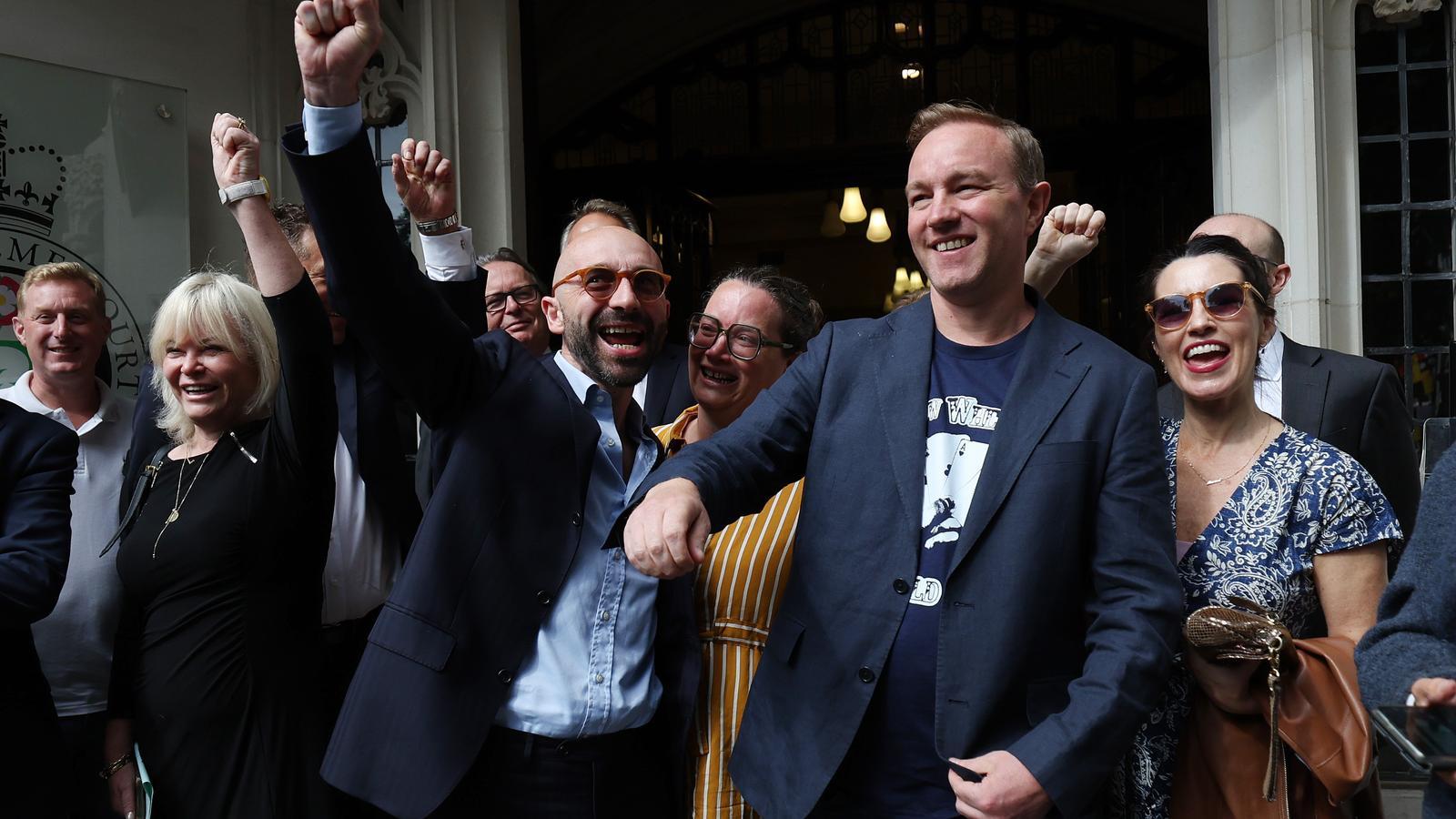The British Supreme Court quashes convictions for bank interest rate fraud
Convicted Tom Hayes and Carlo Palombo were not given a fair trial, even though "there was evidence for a conviction."


LondonThe UK Supreme Court on Wednesday overturned the conviction of Tom Hayes, a former UBS and Citigroup trader who became the first banker convicted worldwide of manipulating the London Interbank Offered Rate (LIBOR), a key index used to set interest rates on millions of loans and mortgages. Hayes was sentenced in 2015 to 14 years in prison—later reduced to 11—for conspiracy to defraud, and served five and a half years before being released on parole.
In a unanimous decision, the Supreme Court also overturned the conviction of Carlo Palombo, a former Barclays executive, who was sentenced in 2019 to four years in prison for manipulating the Euribor, the euro-denominated interest rate index. The judges found that, although there was sufficient evidence for a conviction, the confusing explanation of the case to the jury during the trials compromised the fairness of the proceedings, making the sentences "unsafe and unsustainable." In response, the Serious Fraud Office (SFO), the British anti-fraud agency that brought the case, has announced that it will not seek a retrial.
The manipulation of Libor and Euribor was discovered after the 2008 financial crisis and triggered billions in fines and penalties for banks around the world, which manipulated the indices to benefit their operations. Libor was used to set the interest rate for more than 270 trillion pounds in loans, mortgages, and derivatives globally. Euribor, created in 1999, is the European benchmark for euro transactions.
Hayes was the first person convicted by the SFO in a series of trials that ended with nine convictions between 2013 and 2019. Now, following the Supreme Court ruling, he himself has called for a review of the other seven current convictions and has called for the dissolution of the SFO, which he has criticized for its dissolution.
Was there an impact in Spain?
At the European level, the Libor and Euribor scandal had a major impact. In 2013, the European Commission imposed fines worth €1.7 billion on banks such as Barclays, Deutsche Bank, Société Générale, and RBS for manipulating these indices. In Spain, the scandal generated significant concern, since most variable-rate mortgages are referenced to the Euribor. Although there have been no similar criminal proceedings, consumer associations filed class-action lawsuits, arguing that the manipulation had harmed borrowers. However, Spanish courts have not declared the affected mortgages void.
Although the British Supreme Court ruling has no direct legal effect in the European Union, legal experts point out that it could influence how future prosecutions related to financial crimes and the definition of "dishonesty" in these cases are handled.
To prevent similar cases in the future, the United Kingdom adopted a specific offense for the manipulation of reference rates in 2016, while the EU strengthened its regulations with Regulation 2016/1011, which establishes rules to ensure the integrity and transparency of financial indices.
The decision by the UK Supreme Court is in line with other recent judicial reviews, such as one in the United States, where the conviction of Mark Johnson, former head of foreign exchange at HSBC, was recently quashed in a case of foreign exchange (forex) market manipulation for which banks paid fines of around 1.
Despite the quashing of the conviction, the judges made it clear that there was solid evidence against Hayes, but that the way the case was explained to the jury did not guarantee a fair trial. This has dealt a blow to the reputation of the SFO, which now faces a possible review of its operations.
Tom Hayes has stated that, despite his traumatic experience, he remains hopeful that his name and that of his colleagues will be cleared. This case could highlight the vulnerability of global financial systems when trust in key players is broken, and the need for stricter regulation and oversight to protect the millions of people affected worldwide.
